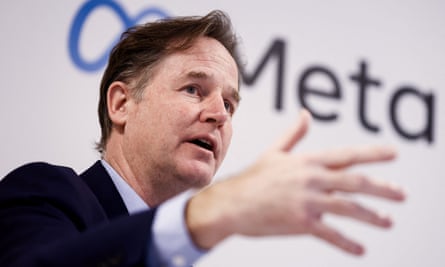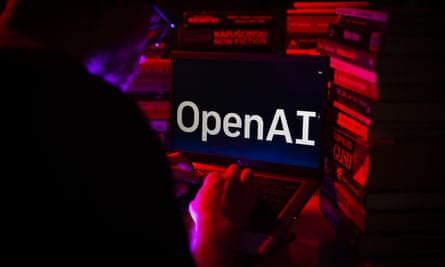Putting the AI genie back in the bottle not an alternative, Meta’s Nick Clegg states
Meta’s worldwide policy head, Sir Nick Clegg, has actually backed require a worldwide company to assist the policy of expert system if it ends up being self-governing, stating federal governments worldwide need to prevent “fragmented” laws around the innovation.
Clegg minimized tips of payment for material developers like artists or news outlets whose work is scraped to teach chatbots and generative AI, recommending such details would be readily available under reasonable usage plans.
“Creators who lean in to utilizing this innovation, instead of attempting to obstruct it or slow it down or avoid it from making use of their own innovative output, will in the long run be much better positioned than those who set their face versus this innovation,” Clegg informed Guardian Australia.
“We think we’re utilizing [data] totally in line with existing law. A great deal of this information is being changed in the method it’s being released by these generative AI designs. In the long run, I can’t see how you put the genie back in the bottle, considered that these designs do utilize openly offered details throughout the web, and not unreasonably so.”

Clegg, Meta’s president of international affairs and a previous British deputy prime minister, stated the business looked for to set “an early criteria” on openness and security mitigations with the release today of Llama 2, its big language design established with Microsoft.
Big language designs, or LLMs, utilize substantial datasets– consisting of information openly available online– to produce brand-new material. OpenAI’s ChatGPT textbot is an example. The fast velocity of such services has actually triggered examination of the ethical and legal issues around the innovation, consisting of copyright problems, false information and online security.

Australia’s federal government is now dealing with the guideline of AI and launched an assessment paper drifting a restriction on “high-risk” usages of expert system, with issues raised about deepfakes, automated decision-making and algorithmic predisposition.
With 2 weeks left in the assessment, significant styles aired have actually been around security and trust. Ed Husic, Australia’s minister for market and science, stated the federal government desired much better structures so they might “with confidence release” AI in locations as varied as water quality, traffic management and engineering.
“I have actually been stating to the roundtables, the age of self-regulation is over,” he informed Guardian Australia.
“We ought to anticipate that suitable guidelines and qualifications use to high-risk applications of AI.”
In his only Australian interview, Clegg motivated the production of constant AI guidelines worldwide, indicating procedures under method through the G7 and OECD.
“Good guideline will be multilateral policy, or lined up throughout significant jurisdictions. This innovation is larger than any business or nation. It would be self-defeating if policy emerges in a fragmented method,” he stated.
“It’s awfully crucial the primary jurisdictions, consisting of Australia, collaborate with others. There’s no such thing as a solo service in this regulative area.”

Clegg stated Meta was motivating tech business to begin setting their own standards on openness, responsibility and security while federal governments created laws. He stated Meta, Microsoft, Google, OpenAI and others were establishing innovation to assist users find material produced by AI, however cautioned it would be “essentially impractical” to spot AI-generated text.
OpenAI’s Sam Altman last month recommended a global company supervise the advancement of AI innovation, raising the International Atomic Energy Agency as an example. Clegg stopped short of backing such a procedure to assist present innovation, explaining LLMs as “advanced thinking devices”, however backed some global oversight if AI ended up being more effective.
“The essential concept is, how should we as a world respond if and when AI establishes a degree of autonomy or company?” Clegg stated.
“Once we do that, we do cross a Rubicon. If that takes place, by the method, there’s dispute amongst professionals; some state in the next 18 months, some state not within 80 years. When you cross that Rubicon, you’re in an extremely various world.
after newsletter promo
“The big language designs we’ve launched are extremely primitive compared to that vision of the future. It’s not our objective to construct synthetic generative intelligence, that’s not what Meta has to do with and attempting to develop. If it does emerge, I do believe, whether it’s the IAEA or some other regulative design, you’re in a totally various ballgame.”
A more instant issue raised about existing innovation is how AI designs are trained and what information they scrape, resulting in concerns about copyrighted product. Clegg stated Llama 2 is not trained on information from Meta users, however stated the business thought it was appreciating copyright rights.
“We think we’re doing so directly in line with existing law, existing requirements of reasonable usage of information,” he stated.
“I completely comprehend copyright owners and others are going to begin raising concerns about precisely what the ramifications are for their own copyright.”
Clegg dismissed contrasts with Australia’s news media bargaining code, which paid news outlets for the worth their material gave Facebook. He stated factor to consider was continuous about how public details, which is then “changed” and utilized in various settings, need to be dealt with.
“It appears to us, a minimum of, that this is something helpful for the world, it’s inherent to this innovation, however I highly believe what you’re going to have is great deals of really arcane arguments about whether the information is utilized in unchanged type or in a transformed type,” Clegg stated.
“The web in a sense runs, especially on the concept of reasonable usage, that individuals can utilize openly readily available information in a quite flexible method. Otherwise the web just would not run.

“I accept the laws, on the statute book, are composed for a world in which generative AI didn’t exist. I highly believe this is something that will play out in courts, parliament and so on.”
Mia Garlick, Meta’s local director of public law, stated the business was evaluating the Australian federal government’s strategies and would supply feedback on the conversation paper, stating the innovation should be established “properly”.
“We support reform that acknowledges the quickly establishing area of AI and support the advancement of market requirements to guarantee all of us innovate properly,” she stated in a declaration.
“We’re currently seeing the favorable effect of AI for many individuals, and our company believe it must benefit everybody, not simply a couple of business.”
Source: Putting the AI genie back in the bottle not an alternative, Meta’s Nick Clegg states